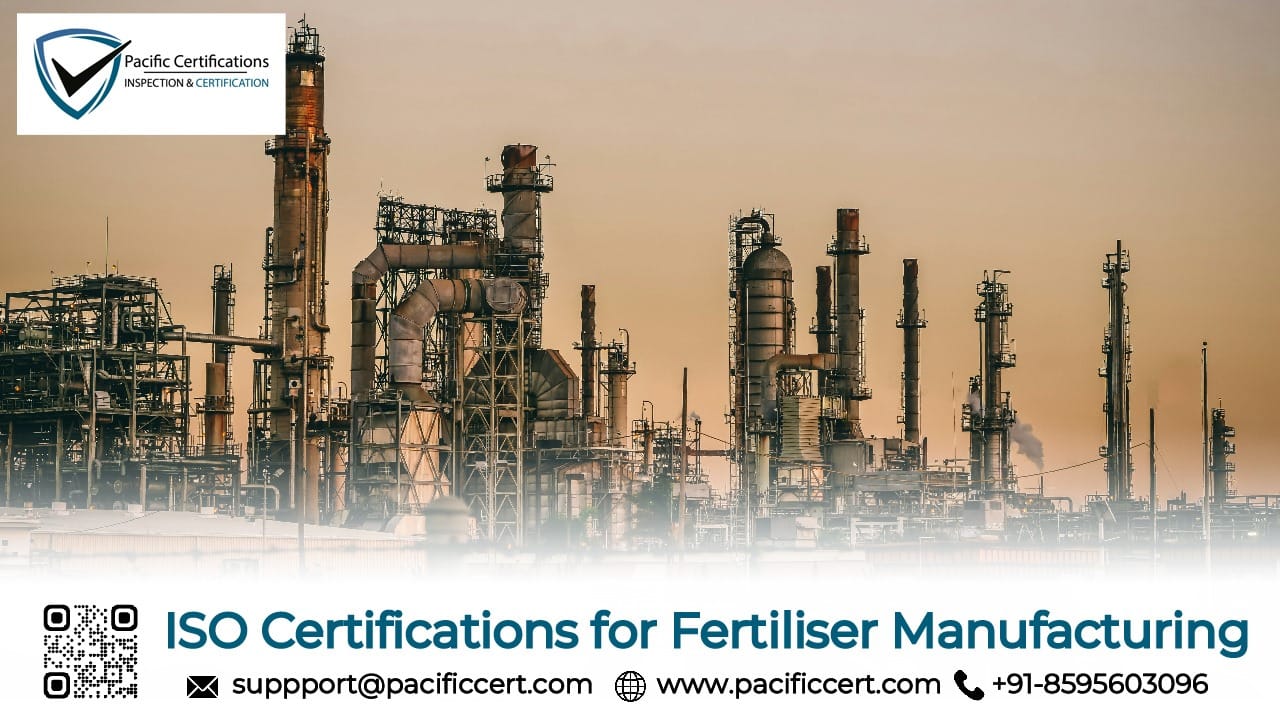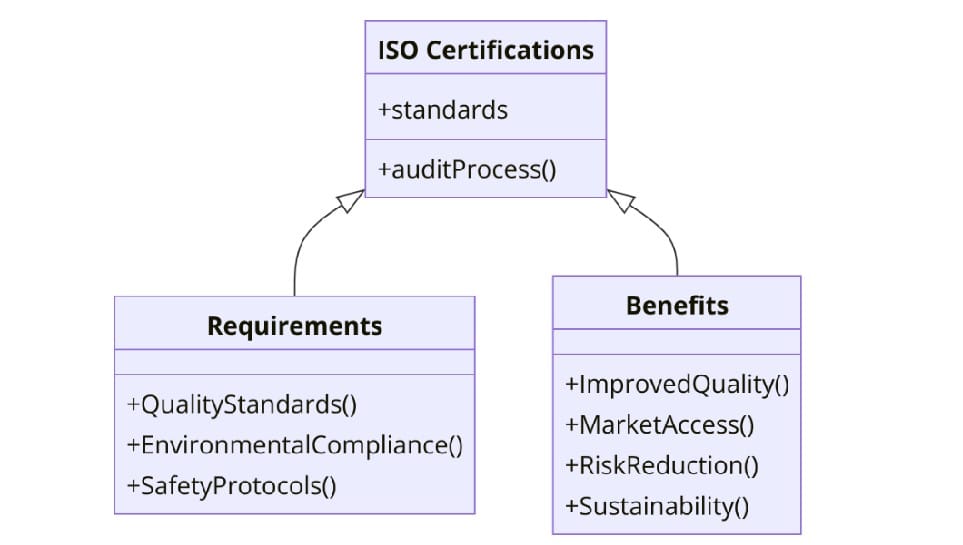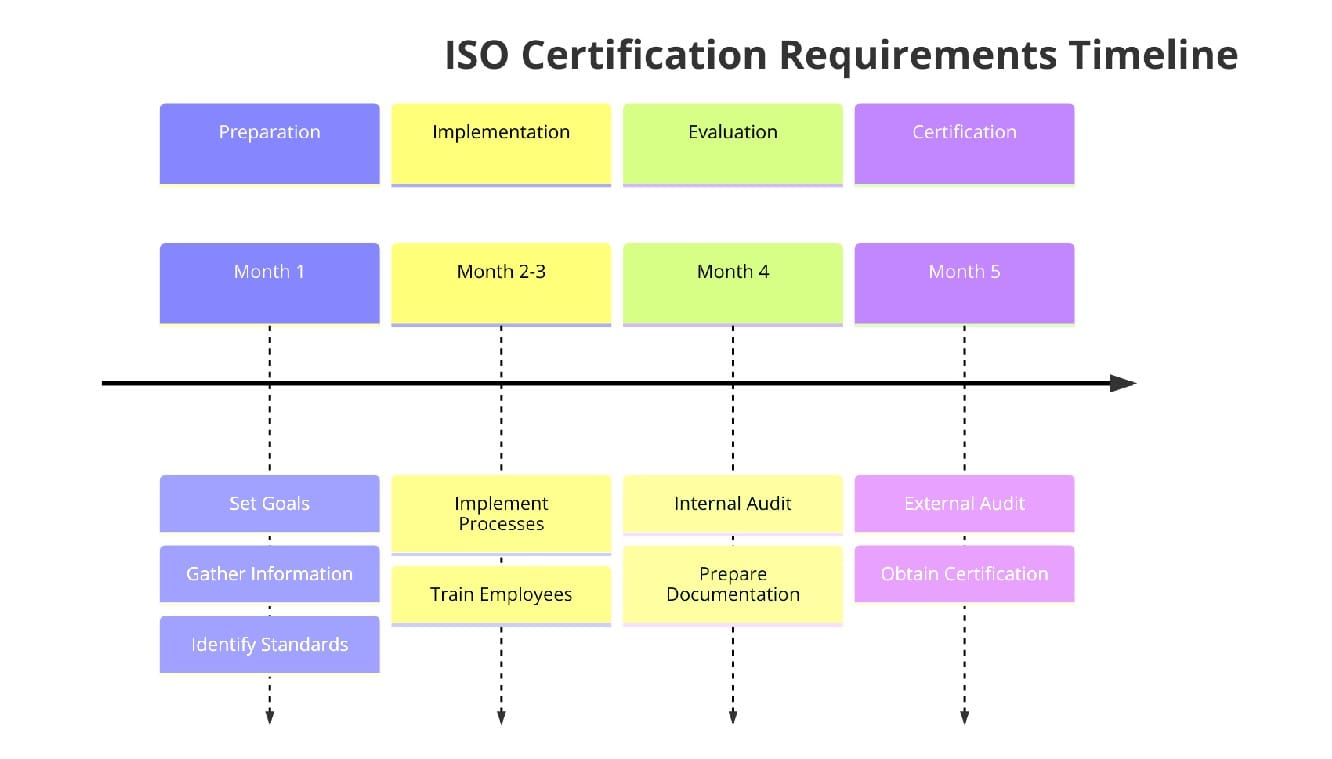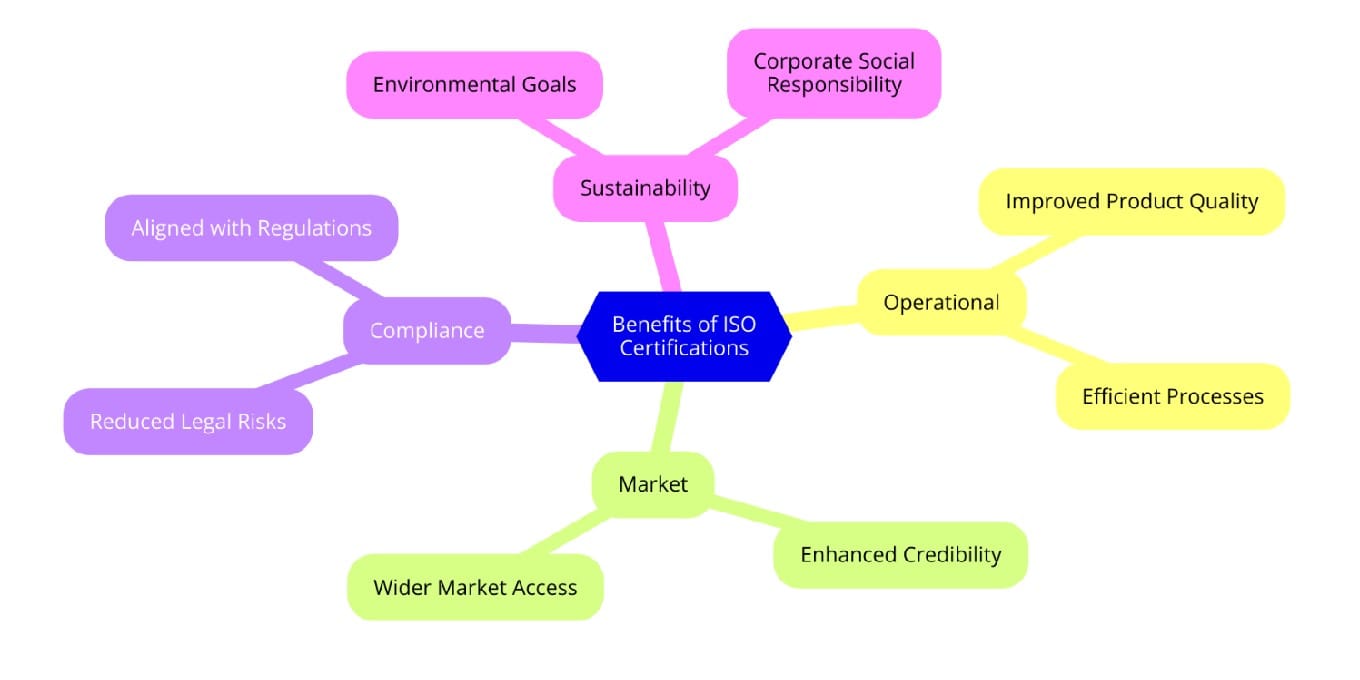ISO Certifications for Fertiliser Manufacturing Businesses, Requirements and Benefits

ISO Certifications for Fertiliser Manufacturing
Fertiliser manufacturing is an industry that demands precision, safety, and strict adherence to quality and environmental standards. As global demands for agricultural products continue to rise, the role of ISO certifications in maintaining these standards is more crucial than ever.
ISO certifications provide a structured framework for managing operations, ensuring consistent product quality, and promoting sustainability. For fertiliser manufacturers, achieving these certifications can demonstrate their commitment to quality, environmental responsibility, and safe work environments.

Importance of ISO Standards in the Fertiliser Manufacturing Industry
ISO standards have become the gold standard in many industries, including fertiliser manufacturing. For this sector, these standards emphasize the importance of sustainable practices, safe working conditions, and high-quality output.
Given the environmental and health implications associated with fertiliser production, adopting ISO standards is both a business advantage and a moral responsibility.
If you're seeking ISO certification for your fertiliser manufacturing business, reach out to us at [email protected] or call us at +91-8595603096. We’re here to help with the certification process!
Applicable ISO Standards for Fertiliser Manufacturing
Several ISO standards are particularly relevant to the fertiliser manufacturing industry:
ISO 9001 – Quality Management
This standard ensures that a company has quality management systems in place, allowing fertiliser manufacturers to deliver consistently high-quality products.
ISO 14001 – Environmental Management
Environmental sustainability is a priority for fertiliser manufacturers. ISO 14001 sets out a framework for an effective environmental management system, helping companies reduce their ecological footprint.
ISO 45001 – Occupational Health and Safety
ISO 45001 focuses on creating safe and healthy work environments. It addresses workplace hazards and provides guidelines for reducing risks to employees.
ISO 50001 – Energy Management
With energy being a major cost in fertiliser production, ISO 50001 guides manufacturers in establishing energy-efficient practices that can lead to cost savings and reduced environmental impact.
ISO 22000 – Food Safety Management
Although more commonly associated with food industries, ISO 22000 can be applied to fertiliser manufacturing, especially where the risk of contamination could impact food products indirectly.
Click here to find out more applicable standards to your industry
We at Pacific Certifications play an essential role in guiding fertiliser manufacturers through the certification process. As an accredited certification body, we assist in auditing and issuing certifications. Our role is to objectively assess compliance with ISO standards, ensuring that fertiliser manufacturers adhere to the highest industry standards.
Ready to elevate your fertiliser manufacturing standards? Contact us for ISO certification assistance at [email protected] or +91-8595603096.
Requirements of ISO Certifications for Fertiliser Manufacturing

ISO 9001 Requirements for Fertiliser Manufacturing
ISO 9001 is centered on quality management. Key requirements include establishing a customer-focused environment, maintaining effective internal communication, and continually improving processes. Fertiliser manufacturers must document procedures, track performance metrics, and implement corrective actions to maintain quality.
ISO 14001 Requirements for Fertiliser Manufacturing
For environmental management, ISO 14001 requires companies to set environmental objectives, monitor and control emissions, and minimize waste. Fertiliser manufacturers must evaluate their impact on air, water, and soil and take steps to mitigate any negative effects.
ISO 45001 Requirements for Fertiliser Manufacturing
ISO 45001 addresses occupational health and safety. Fertiliser manufacturers must identify potential hazards, develop emergency response plans, and provide regular safety training to employees. ISO 45001 certification indicates a company's commitment to protecting its workforce from work-related injuries.
ISO 50001 Requirements for Fertiliser Manufacturing
Energy efficiency is critical in fertiliser production due to the high energy demands of the industry. ISO 50001 guides manufacturers in establishing an energy management system, setting measurable energy-saving goals, and regularly reviewing energy performance to reduce costs and environmental impact.
ISO 22000 Requirements for Fertiliser Manufacturing
ISO 22000 ensures food safety controls where fertiliser production might indirectly impact food quality, such as through contamination in the supply chain. Adhering to this standard means implementing preventative measures against contamination risks.
Ensure quality and compliance in your fertiliser manufacturing operations! Get in touch with us at [email protected] or +91-8595603096 for ISO certification.
Benefits of ISO Certifications for Fertiliser Manufacturing

Implementing ISO standards offers multiple advantages to fertiliser manufacturers:
- Efficiency and Cost Savings: By optimizing processes, companies can reduce operational costs, waste, and energy use.
- Reputation: ISO certifications are globally recognized, enhancing a company’s reputation among clients and partners.
- Regulatory Compliance: ISO standards often align with national and international regulations, helping companies avoid legal complications.
- Risk Management: Standards such as ISO 45001 contribute to safer work environments, reducing the risk of accidents.
- Market Competitiveness: ISO-certified companies often find it easier to expand into new markets due to the trust associated with these standards.
Market Trends
In 2024, fertiliser manufacturing is expected to see significant trends towards sustainable practices. The rising focus on organic farming and eco-friendly fertilisers highlights the need for ISO 14001 and ISO 50001 certifications.
Additionally, as global energy costs fluctuate, more manufacturers are adopting ISO 50001 to manage energy efficiency proactively. Industry research also shows an increase in customer demand for quality and safety, aligning with ISO 9001 and ISO 45001.
Pacific Certifications is accredited by ABIS, in case you need support with ISO certification for your Fertiliser Manufacturing business, please contact us at [email protected] or +91-8595603096.
Ready to get ISO certified?
Contact Pacific Certifications to begin your certification journey today!
Suggested Certifications –
Read more: Pacific Blogs

